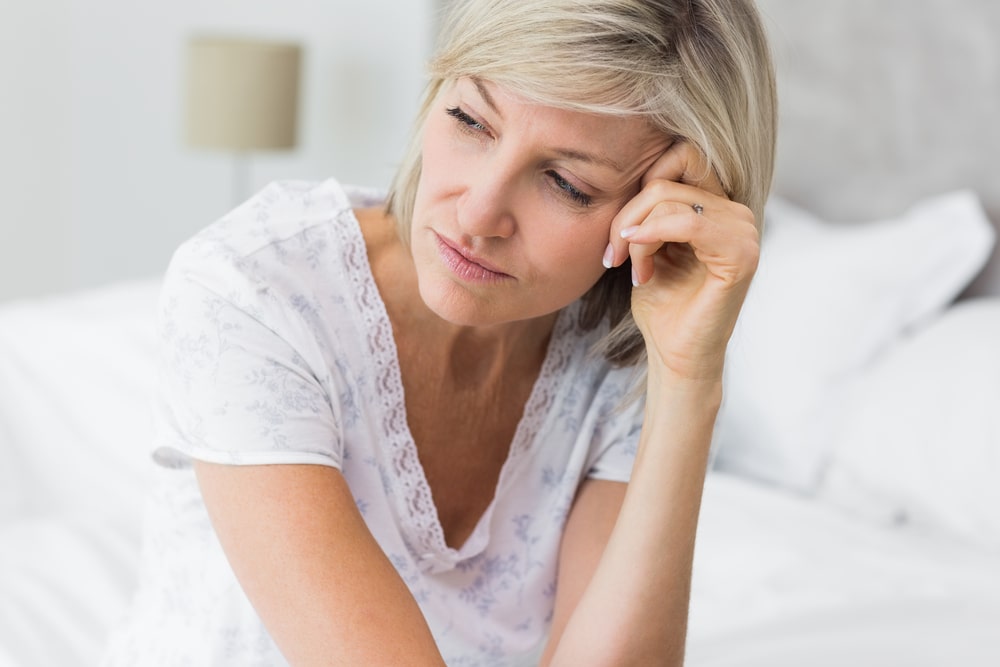Decreased sexual desire, or complete loss of sexual desire, in women in their late 40s is a common problem. However, since its causes can be multifactorial, it can be difficult to identify the elements that represent an obstacle to sexual fulfillment. In this regard, the intervention of a psychologist can be relevant. Find out why by reading this article.
Hormonal changes: too often pointed at?
We can’t address the decrease in sexual desire in women without touching on the issue of hormones. Indeed, the belief that hormonal changes are the main cause of decreased sexual desire in women as they age is still widely held. But what is the reality?
Throughout their lives, women’s libido fluctuates according to the hormones that are produced in their bodies, particularly in connection with the menstrual cycle. During the menstrual cycle, there is a peak in estrogen production in the days before ovulation. This peak often causes an increase in libido, which is probably why the production of this hormone is associated with an increase in sexual desire. However, during premenopause, the body’s production of estrogen declines, before ceasing completely at menopause. This can actually have an impact on a woman’s libido, in addition to other factors, such as vaginal dryness, which can affect the quality of sexual intercourse. In addition, at menopause, the level of testosterone, which is produced by the adrenal glands and ovaries, also decreases considerably. This could also affect sexual desire, although the link between this hormone and libido is still poorly explained.
Despite these hormonal factors that are important to consider, it would be wrong to think that these “biological” aspects are the only ones that need to be taken into consideration. On the contrary, studies tend to show that psychological factors have a much greater impact on women’s libido levels as they age.
Loss of Sexual Desire: Other Factors to Consider
Beyond biological factors, it is believed that it is more social and psychological factors that cause a loss of libido in women in their forties. Here are some factors that should be taken into consideration.
Physical health: Stress, fatigue, decreased physical capacity, appearance of health problems… These are all elements that can affect the level of desire and the desire to indulge in sexual pleasures in women, but also in men.
Judeo-Christian values: In Canada, many people have been raised with strong Judeo-Christian values. They believe that it is socially acceptable for a woman to stop having sex after having children.
Self-image and self-esteem: As we age, our bodies change. Sometimes we get fatter, we have stretch marks, the curves are not as well defined as they were in youth, wrinkles appear, etc. Thus, we no longer necessarily feel as desirable, which can undermine our self-esteem. As the saying goes, “Love yourself before you love others”. Feeling less desirable can therefore affect your desire for yourself.
The Partner’s Attitude: The partner can also be singled out when it comes to a woman’s level of libido as she ages, particularly her partner’s attitudes toward sex. A partner who is overly insistent, selfish and focused on his or her own desires, or who does not try to vary the sources of stimulation, can contribute to the development of an unhealthy climate around the couple’s sexual relations.
Couple Problems: Finally, good communication within the couple is essential for maintaining healthy sexual relationships. Each member of the couple has their own way of keeping the “flame” alive, and this often goes far beyond what happens in the bedroom.
Psychologist support: when is it appropriate?
Too many women are still hesitant to seek professional help to deal with the problem of loss of libido as they age, regardless of the causes. However, sexual problems within a couple can in turn lead to serious relationship conflicts. They can also lead to distress for the woman and her partner, or even fear, anxiety, depression, etc.
In this sense, it is relevant for a woman, and her couple, to consult a psychologist when a loss of libido or sexual desire is felt. The psychologist’s role in this context is to educate the client in order to help her understand the factors that may explain the loss of libido or sexual problems within her couple. The therapist can then propose simple and effective solutions so that the woman can develop her sexuality, rather than throwing her out completely.
In short, the psychologist’s intervention can help raise the woman’s awareness of the notion of healthy sexuality, by proposing practical solutions so that she can maintain this attraction in her couple, and in her life!
The psychologists at Clinique GO™ offer consultation services at home, but also via teleconsultation. Learn more about the terms of this highly versatile teleconsultation service, which is open to people of all ages.
 Approuvé par Francis Desjardins
Approuvé par Francis Desjardins



